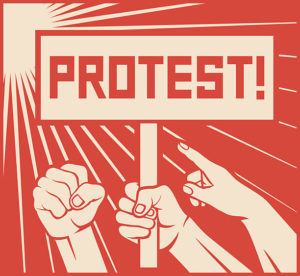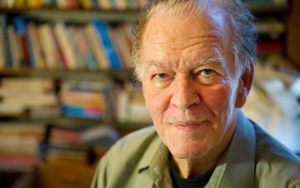
Change Agent: Gene Sharp’s Neoliberal Nonviolence (Part Two)
Gene Sharp, the Cold War defense intellectual-cum-“Nonviolent Warrior,” is famed for developing a theory of nonviolent action that has undergirded regime change operations around the world. But Sharp also had an impact closer to home: the U.S. protest left. Thanks to a little-known organization from the 1970s called the Movement for a New Society, Sharp’s ideas are ubiquitous on the protest left, bound-up with a rarely named ideology, “revolutionary nonviolence.” Nonviolent direct action is a vital feature of broad-based people’s movements, but historically, “revolutionary nonviolence” has been, at best, ambivalent about, and at worst, antagonistic to questions of class struggle. A closer look is warranted.



